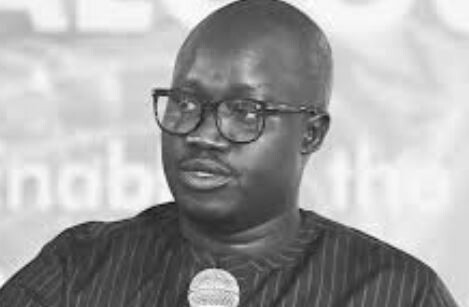The Tumaini Initiative presents a rare opportunity for South Sudanese to rethink and address the fundamental challenges facing the constitution-making process since 2012.
From the outset, there has been no political will to genuinely prioritize and implement the government program in rewriting a new constitution. Recently, the government allocated resources to the Political Parties Council (PPC), about Five Million United States Dollars, and the National Election Commission (NEC) amounting to Fifteen Million United States Dollars. The National Constitutional Review Commission (NCRC) has been underfunded by the government since 2012 with almost zero budget allocation. This was done to frustrate the whole process since the government does not consider the Constitution Making Process a top priority to take seriously.
There is an absolute trust deficit among and between the political leaders and an already huge fear of politicization of the Constitutional Making Process as opposed to a process led and owned by the people of South Sudan. Equally, citizens have enormous trust deficits in the political leaders to deliver a genuine people’s Constitution, and these fears were even expressed during the National Dialogue. Therefore, there is a need to establish an independent body to spearhead the process without any political influence and manipulation to favor a few political elites.
The Constitution Making Process Act 2022 provided for key institutions such as the National Constitution Review Commission (NCRC) whose task is to spearhead the Constitutional Making Process. However, it is abundantly clear the current NCRC is heavily politicized and subjected to the 2018 peace agreement power-sharing ratio. The parties in the Revitalized Transitional Government of National Unity (RTGoNU) allocated themselves 55 percent and other stakeholders who were the people’s representatives were allocated 45 percent. How do you refer to such a process as people-led and owned when its institutions are already heavily politicized to meet specific political agendas as opposed to addressing genuine fundamental issues facing our people?
Kenya, hosting the High-Level Mediation on South Sudan (Tumaini Initiative), had its 2010 constitution that gave Kenyans a new constitutional and political dispensation conducted and written by only nine members of a Hybrid Independent Panel of Experts who were nominated and appointed through a transparent process as provided for by law. So far, the Kenya 2010 Constitution has protected their democracy and rule of law. It has allowed a peaceful transfer of power from one president to another. It has equally provided unique safeguards to protect independent institutions including the judiciary. In Namibia’s Constitution-Making Process, only three committee members drafted the constitution and they were all foreigners from South Africa. In Uganda, the twenty-one man Justice Benjamin Odoki Commission did the public consultations, drafted the constitution, and presented it to the Constituent Assembly for deliberation and adoption.
South Sudan is ethnically polarized and deeply divided, there will be serious controversial constitutional issues that might require the facilitation of someone deemed to be neutral and non-South Sudanese to moderate the conversations and discussions to build consensus. Such issues might include land, federalism, sharing of natural resources, devolution of powers and resources, and others.
To deliver a genuine, credible, and people-owned constitution, there is a need to disband or dissolve the current National Constitution Review Commission (NCRC) and instead establish a Hybrid Independent Panel of Experts recruited by an independent committee in an open, transparent, and accountable manner through public participation. This independent commission will attract foreign donors whether in-kind, through expertise, or resource mobilization.
I want to use the example of the National Constitution Amendment Committee (NCAC) in which I participated as a member. Had it not been for the committee chairperson and vice chairperson appointed by the Intergovernmental Authority on Development (IGAD), where it was an independent committee and donors found it necessary to fund it through UNDP, we would not have finished the amendments processes not even three or four bills because the last time the committee got money from the government was in 2020.
The writer, Wani Michael, was a Youth Representative at the National Constitutional Amendment Committee (NCAC) and is currently participating in the Nairovi Peace Talks as a civil society representative. He can be reached via wanimichael57@gmail.com or Skype: wani.michael5.
The views expressed in ‘opinion’ articles published by Radio Tamazuj are solely those of the writer. The veracity of any claims made is the responsibility of the author, not Radio Tamazuj.




